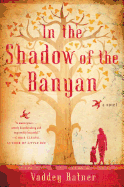
| Publisher: | Simon & Schuster | |
| Genre: | General, Fiction, Coming of Age, Literary | |
| ISBN: | 9781451657708 | |
| Pub Date: | August 2012 | |
| Price: | $25 |
| Fiction |
by Vaddey Ratner
Vaddey Ratner's debut novel, In the Shadow of the Banyan, is an autobiographical treatment of the Khmer Rouge's takeover of Cambodia and subsequent genocide. Raami, the seven-year-old Vaddey surrogate, is the narrator of the horrendous events. (Vaddey herself was five when the Khmer Rouge dispossessed her royal family; they never saw their home again.)
Raami, her parents and other family members are driven out to the countryside, where, in rhetoric reminiscent of China's Cultural Revolution, soldiers with bullhorns scream at them, commanding them to forget the past in order to create a new Cambodia. Families are separated so that loyalty will revert to the state, not remain with individuals, yet Raami, who adores her father, a poet, never transfers allegiance from her family, even when her father is lost to them.
Four years of privation, illness, killingly hard work and sorrow are recounted with equal parts poignancy, lyrical reflection and heartrending remembrance of halcyon times at home, connected by Raami's hope for survival. Her beloved father is the reason that hope stays alive for Raami. "When I thought you couldn't walk, I wanted to make sure you could fly," he tells her, recalling the polio she had as an infant. "I told you stories to give you wings, Raami, so that you would never be trapped by anything--your name, your title, the limits of your body, this world's suffering."
Ratner's touching and beautifully written In the Shadow of the Banyan celebrates the human spirit, the power of story and imagination and the triumph of good over evil. --Valerie Ryan, Cannon Beach Book Company, Ore.

| Publisher: | Doubleday | |
| Genre: | Fiction, Romance, Contemporary | |
| ISBN: | 9780385536189 | |
| Pub Date: | August 2012 | |
| Price: | $25.95 |
| Fiction |
by Laurie Frankel
Perhaps Goodbye for Now should be sold in a plain white wrapper so readers will not be scared off by Laurie Frankel's utterly original, yet possibly off-putting, premise. The novel begins as a sweet love story when Sam Elling creates an algorithm for the computer dating company where he works that bypasses the often inauthentic information clients offer and instead matches them according to the sum of every online interaction they've ever had. As a result, instead of showing customers the matches they think they want, it sets them up with people they will truly love. Unfortunately, this bit of genius coding gets Sam canned; his employer starts to lose money once the perfectly matched couples no longer have a need for matchmaking. Fortunately, while beta-testing his creation on himself, Sam has already found Meredith, his true love.
Early in their relationship, Meredith's beloved grandmother dies; this gives Sam an idea that revolutionizes the grief process. With code he created to track people's past online interactions, he may be able to write another program that can replicate communication with DLOs (dead loved ones). After all, so many conversations tend to follow certain patterns as they cover common subjects--weather, health, job, sports. What happens next is not only thought-provoking and a bit disturbing but hilarious and well-intentioned.
Frankel's second novel (after The Atlas of Love) finds a way to translate one of the most painful aspects of mortality--losing loved ones--into a compelling and humorous look at how relationships have evolved in the age of the Internet. --Kristen Galles from Book Club Classics
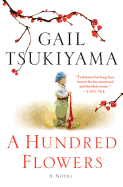
| Publisher: | St. Martin's Press | |
| Genre: | General, Fiction, Historical | |
| ISBN: | 9780312274818 | |
| Pub Date: | August 2012 | |
| Price: | $24.99 |
| Fiction |
by Gail Tsukiyama
"Let a hundred flowers bloom; let a hundred schools of thought contend." In 1956, Mao Tse-Tung issued an invitation to the people of China, encouraging them to give their frank opinion of the communist government and of how to create a stronger nation. Gail Tsukiyama's A Thousand Flower distills the horrible reality of what happened next through the fictional experience of one Guangzhou family.
Someone in the Lee family writes a letter with concerns about the present and suggestions for a greater China. When the letter is received by Mao's cadre, former professor Sheng Lee is taken away for "re-education." There is never-ending sadness in the household because they know that they may never see Sheng again.
Sheng's wife, Kai Ying, with the assistance of Auntie Song, who lives in a small cottage and keeps a huge garden, does all she can to manage the household despite missing her husband, worrying about her son and being chief caretaker of all. But one day, Sheng's father, Wei, telling no one, boards a train for Luoyang, determined to find his son. He has much to tell him--and much to atone for.
Wei's trip back to Guangzhou, what he has to report and Tao's growth in maturity and understanding are beautifully told as Tsukiyama reminds us (as she has in previous novels) of the solace of family and tradition against a backdrop of guilt and secrets. --Valerie Ryan, Cannon Beach Book Company, Ore.
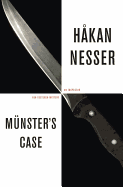
| Publisher: | Pantheon | |
| Genre: | General, Crime, Police Procedural, Fiction, Mystery & Detective | |
| ISBN: | 9780307906861 | |
| Pub Date: | August 2012 | |
| Price: | $25.95 |
| Mystery & Thriller |
by Hakan Nesser, trans. by Laurie Thompson
Münster's Case is billed as an Inspector Van Veteren mystery, but we see very little of Maardam's veteran Chief Inspector until near the end of the story. Instead, Hakan Nesser turns the investigation over to Van Veteren's colleague, Intendent Münster.
Four retirees have won a 20,000-guilder lottery--not a fortune, but worth celebrating. They get gloriously drunk at their favorite bar, two of them argue and everyone goes home. At around 2 a.m., Waldemar Leverkuhn is murdered, stabbed 28 times. It develops that another member of the quartet, Bogner, disappeared that night. Are the two events connected?
Much of the first part of the novel is concerned with the investigators trying to figure out not only who killed Leverkuhn but whether they should look for Bogner's body. Bogner and Leverkuhn are the two who had argued, giving credence to the possibility the dispute continued outside the bar.
Marie-Louise, Leverkuhn's wife, who came home late to find her husband in a veritable bloodbath, says she ran to the nearby police station, discovered it closed, then came back home to call the police. The Leverkuhns' apartment caretaker, Else Van Eck, also disappears suddenly: Is it connected to the murder? Interviews with the three grown Leverkuhn children also deepen the mystery.
Just when the reader thinks that the story is all sorted out, an unexpected snapper at the end makes one realize there were early clues to the outcome all along. --Valerie Ryan, Cannon Beach Book Company, Ore.
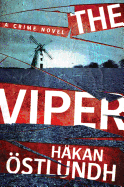
| Publisher: | Minotaur Books | |
| Genre: | Fiction, Police Procedural, Mystery & Detective | |
| ISBN: | 9780312642327 | |
| Pub Date: | August 2012 | |
| Price: | $24.99 |
| Mystery & Thriller |
by Hakan Ostlundh, trans. by Per Carlsson
Arvid Traneus, a ruthless businessman who has been working in Tokyo, returns home to the Swedish island of Gotland. Within a few days of his arrival, his wife, Kristina, is found brutally murdered in the Traneus living room along with another dead body. It's soon proven that the unrecognizable victim is not Arvid but his cousin Anders, making Arvid the number-one suspect.
Detectives Fredrik Broman and Sara Oskarsson lead the chase for Arvid, digging into the history of the Traneus family to discover why he would want to kill Kristina and Anders with such viciousness. Hindering the investigation is the fact that Gotland is a small community where memories are long and people are unwilling to get involved in a family dispute.
Hakan Ostlundh heightens the tension of The Viper by recounting the lead-up to the crime from various points of view: Arvid's, Kristina's, each of their children's, and that of an unknown man. He intersperses these flashbacks into the unfolding of the current investigation, along with chapters set a few weeks in the future, where a police officer is lying unresponsive in the hospital. These chapters added a nice twist--the reader must figure out not only the murder scenario, but also how the police officer ended up in the hospital, whether it's related to the case, and how much time has elapsed between the murders and the future scenes. It's a touch that upgrades the novel's traditional mystery into one that is irresistible. --Jessica Howard, blogger at Quirky Bookworm
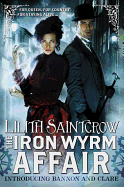
| Publisher: | Orbit | |
| Genre: | Urban Life, Science Fiction, Fiction, Romance, Fantasy, Steampunk, Contemporary, Historical, Paranormal | |
| ISBN: | 9780316201261 | |
| Pub Date: | August 2012 | |
| Price: | $13.99 |
| Science Fiction & Fantasy |
by Lilith Saintcrow
For The Iron Wyrm Affair, Lilith Saintcrow has created an alternative 19th-century England where Queen Victrix recently gained control of the throne--which carries with it the additional responsibility of being the living incarnation of Britannia, the empire's spirit. Emma Bannon is a sorceress of the highest rank, working in the queen's service; as the story begins, she has come to recruit (or to protect?) Archibald Clare, an unabashedly Holmesian master of deductive reasoning. The reasons why emerge with precisely calibrated narrative timing, but even as the sorceress and the "mentath" begin to work together, Emma's most important relationship is the one between her and her Shield, Mikal. Though Mikal is duty bound to protect her life, Emma cannot bring herself to fully trust him--even though she has taken profound steps to protect him from the consequences of the very crime that stirs her misgivings.
Saintcrow (The Hedgewitch Queen) shows rather than tells as she introduces readers to the supernatural parameters of her Londinium with a minimum of speechifying. As a result, her Victorian-era blend of urban fantasy and steampunk-ish technology is occasionally overwhelming, but narrative momentum carries the day--and Clare's intensively inquisitive nature helps put many of the pieces together along the way. In some ways, you might regard The Iron Wyrm Affair as a test run. Now that Saintcrow has established that Bannon & Clare function neatly as a team (with the help of their supporting cast), subsequent novels should reveal the full extent--or limitations--of their capabilities. --Ron Hogan, founder of Beatrice.com

| Publisher: | Knopf | |
| Genre: | History, Biography & Autobiography, Cooking, Women, Culinary | |
| ISBN: | 9780307272225 | |
| Pub Date: | August 2012 | |
| Price: | $29.95 |
| Starred | Biography & Memoir |
by Bob Spitz
No one did more to change American attitudes toward food and home cooking than Julia Child. For more than 30 years, this television icon inspired and encouraged viewers' culinary pursuits with her confident joie de vivre and a voice Bob Spitz describes as "a cross between Tallulah Banks and a slide whistle." Spitz's Dearie, published to coincide with the centennial of Child's birth, is a comprehensive biography that fizzes with the humor and spirit of its subject's remarkable life.
Spitz shows us Child's formative years and how an adolescence that stretched into adulthood allowed her to develop the independent, rebellious spirit that would help her shine a bright light against the onslaught of over-processed convenience foods. He devotes ample space to Paul, Julia's husband, an artistic and romantic man of the world who considered his wife "a veritable goddess" and with whom she enjoyed years of wedded bliss.
Spitz and Child intended to collaborate on her biography, a decision made as they toured Sicily together in 1992, when Spitz interviewed Child for several magazines. Child passed away while Spitz was completing another biography (The Beatles), but Spitz continued the project, through letters and diaries belonging to Julia and Paul Child as well as her closest friends Simone "Simca" Beck and Avis DeVoto, plus interviews with friends, family and colleagues. Dearie may not be the only biography of Julia Child on bookstore shelves, but Spitz's joyous and definitive rendering of an American icon will inspire readers in the kitchen and beyond. --Jaclyn Fulwood, blogger, Infinite Reads

| Publisher: | Houghton Mifflin Harcourt | |
| Genre: | Biography & Autobiography, Literary, Editors, Journalists, Publishers | |
| ISBN: | 9780547669205 | |
| Pub Date: | August 2012 | |
| Price: | $25 |
| Biography & Memoir |
by Luisita Lopez Torregrosa
Luisita López Torregrosa (The Noise of Infinite Longing) is a New York newspaper editor when Elizabeth comes aboard as a new reporter in the 1980s. Her quiet, self-contained, slightly mysterious air draws Luisita's attention. When Elizabeth lands a sought-after position as foreign correspondent, she builds a home for herself in Manila, Luisita joins her there, and the two women throw themselves hesitatingly and then wholeheartedly into a passionate affair against the backdrop of the fall of Ferdinand Marcos.
As a love story, Before the Rain is spellbinding and heartwrenching, but Torregrosa's highest feat is perhaps one of poetry. Her tone is haunting, lyrical and sensuous. Readers will feel the equatorial heat of the Philippines and the beat of the Manila Blues, smell the mangoes and squatters' camps, taste the margaritas and then feel the biting cold of New York winters as the story returns to the United States.
Before the Rain is a memoir of revolution as well as love: the beauty, upheaval and political turmoil of the Philippines are handled sensitively and lovingly. Besides Manila, Luisita and Elizabeth live and travel in New York, Tokyo, Los Angeles, Miami, Rio and Washington, D.C.--each of these places leaves its mark. But their relationship is always the book's main focus. The two women travel, move, work various jobs (some rewarding, some soul-draining); throughout, their ardor has a momentum all its own. Even in its painful finale, that love is this book's most lovely evocation. --Julia Jenkins, librarian and blogger at Pages of Julia
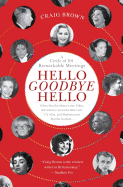
| Publisher: | Simon & Schuster | |
| Genre: | Quotations, General, Humor, Form, Biography & Autobiography, Cultural Heritage, History, Reference | |
| ISBN: | 9781451683608 | |
| Pub Date: | August 2012 | |
| Price: | $26.95 |
| Starred | History |
by Craig Brown
Hello Goodbye Hello is "Six Degrees of Kevin Bacon," repeated more than a hundredfold--without Kevin Bacon. The book cycles through 101 meetings between well-known writers, artists and heads of state, each vignette connected to the next by at least one of its participants. Thus Adolf Hitler is nearly run over by John-Scott Ellis, who in his childhood knew Rudyard Kipling, who once dropped in on Mark Twain... and so on, until the Duchess of Windsor takes tea with Hitler and the circle is complete.
What makes Hello Goodbye Hello a joy to read is its fast pace combined with Craig Brown's impeccable comedic timing. Each chapter lasts no more than a few pages, yet Brown (host of BBC Radio 4's This Is Craig Brown) consistently catches the essence of the participants as well as the spirit of the age. Each is punctuated with humorous moments that are often a surprise. (One expects Madonna and Michael Jackson's disastrous dinner date to be funny, but Jackie Kennedy's first tête-a-tête with Queen Elizabeth II?) Brown provokes smiles as well as suppressed giggles--and the urge to read particularly good lines aloud to anyone nearby.
Hello Goodbye Hello is a quick and charming read, and it's great fun for anyone interested in the hidden connections between the great figures of the 20th century--and more than a few of their social gaffes. --Dani Alexis Ryskamp, blogger at The Book Cricket
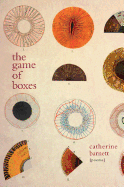
| Publisher: | Graywolf | |
| Genre: | General, American, Poetry | |
| ISBN: | 9781555976200 | |
| Pub Date: | August 2012 | |
| Price: | $15 |
| Poetry |
by Catherine Barnett
Catherine Barnett's first book of poetry, Into Perfect Spheres Such Holes Are Pierced, was stunningly reviewed; it was also awarded the 2003 Beatrice Hawley prize. Her followup, The Game of Boxes, has been greatly anticipated, and is likely to garner congratulatory praise of its own.
Barnett explores the theme of love in its most intimate forms. In some poems, the unifying connection seems to be one of familial love. A series of poems, each titled "Chorus," is written from the viewpoint of children, while other verses clearly depict a deep maternal perspective:
The night is covered
in books and papers and child
and I like having him here,
sleeping loose and uninhibited.
The subject of the poetry shifts easily into an exploration of a more physical form of love. Some poems demonstrate the erotic push and pull, as well as the give and take, of man and woman:
Though I can't sleep neither could I wake,
and when you spoke I heard only the come-on
hard-on voice of this is how I'll do it to you so I moved away,
I wanted you to leave.
Short and tight, all of Barnett's poems are purposeful--and often powerful. The Game of Boxes is a book the reader will want to return to after the first perusal, as the carefully chosen language, imagery, and intent of each poem may open up more broadly with subsequent glances. --Roni K. Devlin, owner, Literary Life Bookstore
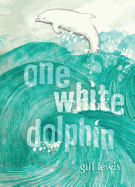
| Publisher: | Atheneum | |
| Genre: | Environment, Animals, Friendship, Mammals, Social Issues, Marine Life, Juvenile Fiction, Nature & the Natural World | |
| ISBN: | 9781442414471 | |
| Pub Date: | June 2012 | |
| Price: | $15.99 |
| Starred | Children's & Young Adult |
by Gill Lewis, illust. by Raquel Aparicio
"Each night I have this dream. Each night the white dolphin waits for me." Gill Lewis (Wild Wings) writes about the dreamer, Kara Wood, a child struggling with loss who continues to love and care about her family and friends and the creatures that populate the sea.
When Kara's marine biologist mother failed to return from a mission a year earlier, Kara and her father had to move in with his loving but anxious sister. Classmate Jake Evans bullies Kara in school, just as his father, Dougie Evans, bullies the townsfolk. After she gives Jake a bloody nose and argues with her father, Kara flees for a cove she once visited with her mother. There she sees the white dolphin calf of her dreams, where "sometimes grey seals haul out on these rocks and lie basking in the sun." Kara believes it's a sign that her mother will return. When the calf beaches, Kara's quick action saves it. As she works to reunite the calf with its mother, readers will feel Kara has a personal stake in the outcome. Aparicio's often dramatic India ink and liquid pencil illustrations reinforce the twining of the fates of the dolphins and the villagers who make their living from the sea.
This life-affirming novel gets its depth from well-drawn, supportive characters such as Kara's father, her cousin Daisy, and Felix, a new boy who has cerebral palsy. But the satisfying climax and believable ending come about because of Kara's indomitable and generous spirit. --Ellen Loughran, reviewer

| Publisher: | Dutton | |
| Genre: | Mysteries, Espionage, & Detective Stories, Juvenile Fiction | |
| ISBN: | 9780525423898 | |
| Pub Date: | July 2012 | |
| Price: | $17.99 |
| Children's & Young Adult |
by Kat Rosenfield
Kat Rosenfield's suspenseful first novel looks at the psychological effects of a stranger's death on Becca, a small-town 18-year-old bound "for a high-powered life in a city far away."
With graduation behind her, Becca is headed for college at summer's end. Her plan is on track until her boyfriend dumps her the night of her graduation, and a dead girl is found on the side of the road just outside of town on County Road 128, a route that veers off to the Appalachians. Becca is so shaken that her future is derailed just hours after she's accepted her diploma and waved the crowd goodbye.
The discovery of the body, beaten and left lying in a pool of blood, with a man's shoe print beside it, leaves Becca stunned and reeling, unable to reconcile the easy world she thought she knew with this new, ugly one filled with suspicion and doubt. Rosenfield alternates scenes of how Amelia Anne ended up dead with Becca's first-person recollections of that summer. The tension rises as each vignette closes, propelling us headlong into a flash of violence and hate as the two stories come together at the finish.
Readers will revel in Kat Rosenfield's description of small-town life. She captures the essence of what it's like to know everyone in town but not know anything about who they really are--their secrets, their fears, their desires. --René Kirkpatrick, blogger and bookseller at Mockingbird Books
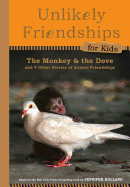
| Publisher: | Workman | |
| Genre: | Juvenile Nonfiction, Animals, General | |
| ISBN: | 9780761170112 | |
| Pub Date: | May 2012 | |
| Price: | $7.95 |
| Children's & Young Adult |
by Jennifer S. Holland
Jennifer S. Holland adapts her popular adult book, Unlikely Friendships: 47 Remarkable Stories from the Animal Kingdom, into an attractively designed photographic paper-over-board book that makes an ideal transitional reader.
In her introduction, Holland describes how she observed a pair of inseparable fish from two different species on a dive at the Great Barrier Reef, which set her down a path to discover other unlikely buddies. She spotlights five such pairs, beginning with the three-month-old rhesus monkey of the cover, rescued from an island in China, and the dove that befriends him until both can return to the wild. Other odd duos include Mauschen, an Asian black bear in a zoo in Germany, and a stray black cat named Muschi; and Tarra, a performing pachyderm that retires to a Tennessee elephant sanctuary where Bella, a stray dog, befriends her. When Bella gets hospitalized in the vet's quarters, Tarra plants herself outside until Bella emerges, then "pets" the pooch with her trunk! Readers also meet Libby, the "seeing-eye cat" for canine Cashew, who's going blind, and the astonishing friendship of a predator and prey in Kenya--a lioness and a baby oryx.
Each six- to eight-page story, set in large type, brims with irresistible full-color photographs. Children can dip in and out or read the entire book in one sitting. Readers will also want to collect The Dog and the Piglet, Book 2 and The Leopard and the Cow, Book 3. --Jennifer M. Brown, children's editor, Shelf Awareness